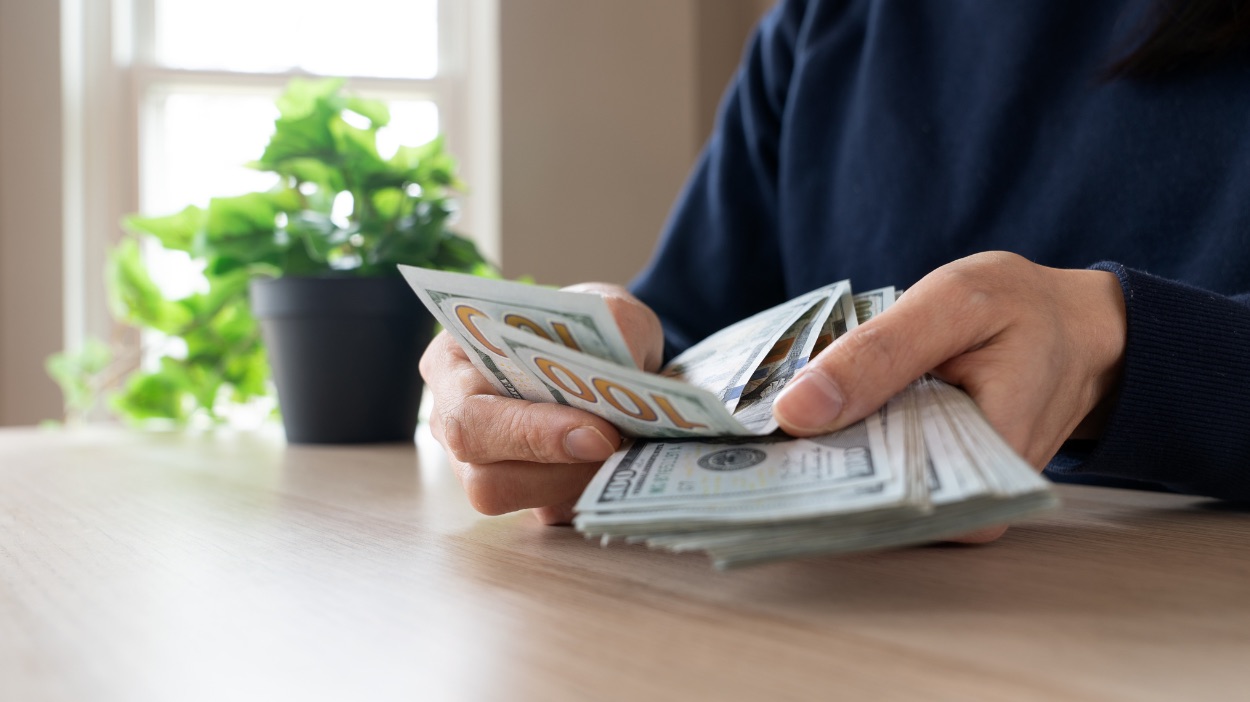Are there things that need to be taken care of, not just mental preparation, but financial preparation? What are some of the basics? I immediately think of cash reserves and Roth IRAs. Where does real estate fall when you're lining up your priorities?
I'm gonna go ahead and take out one of your easy passes. House hacking, I think, is essentially buying your primary residence and finding somebody to help you pay that mortgage. So take that off the table. But when does somebody who wants to buy their first standalone real estate investment, are there some financial steps that need to happen first so they don't find out that they might have gotten into this a little too soon? Are you asking if real estate can be the first investment?
Yes, here's my argument, and I'm trying not to hog the show, but I see because Scott, I can tell we've gotten a hold of a good one here. So I want to make sure that I give him a chance to actually share. But there are so many people out there telling people real estate is all passive, jump into it as fast as you can. And I just want everybody to have the best success and most successful experience with real estate. But it does require, just like Scott talked about, mental preparation and education. There's also some financial preparation that's required. I want to give Scott a chance to kind of weigh in and look at Bigger Pockets.
Yeah, I think what's great about Bigger Pockets is that there are a ton of different voices and perspectives. Bigger Pockets is not just my voice. I have one opinion in the crowd, so there will be people who disagree with me. Personally, I strongly believe that real estate investing should come after building a very strong personal financial foundation. To me, that looks like having several thousand dollars of spread between your income and expenses, after tax, in your bank account. This allows you to fund major repairs or float the mortgage if you don't have a tenant for a few months, for example. I think that's critically important, although people may disagree with me.
Having the cash to put down on a down payment is also critically important. It's a big pet peeve of mine when people take out a HELOC on their primary residence to buy a rental property. When you take out a HELOC, not only do you have the mortgage payment, but you also have to pay back the HELOC. HELOC is short-term debt, even if you're being generous and paying it back over five years. For example, a $60,000 HELOC is a thousand dollars a month before you even consider the interest. This property will drain cash from your life for the next five years, and there's no guarantee that you'll come out smiling on the other side. Personally, I want each investment to gradually and consistently bring cash flow into my life, with a snowball effect building up, rather than a snowball piling up against me until I reach a point that may never come for many investors.
So, building up cash and cash flow is crucial. It can be as simple as that conceptually. We can delve into more details about what the cash entails, such as the down payment, reserves following the purchase, closing costs, and expected repairs. That's how much cash you should have when entering a real estate purchase. How do you do that? Save your pennies. Most of the time, this is a grind that people undertake for several years to get their first property. It gets faster as you buy more properties, and I've seen a lot of responsible overnight successes in seven to ten years. That's a joke, considering the amount of time it takes to build wealth. Real estate is a great vehicle. You can build several thousand, or maybe a couple hundred thousand, to a couple million dollars in net worth with several thousand to several tens of thousands of dollars in passive cash flow. But it's a seven to ten-year journey, faster than stock investing, on average, if you're doing it right and using leverage. It involves more risk and a lot more time commitment, but it's a very viable approach for some. Is that answering your question?
It does, but I want to kind of... because it just hit me, and this is something... coming from a public accounting background where I did tax prep, and I did tax prep for people who had a lot of rental property, and I think about the Great Recession, you'll know who I'm talking about. I want to know, Scott, do you, like, because I think a brand new real estate investor will be drawn to the low purchase price but high transient population. This is that you can go buy a house really cheap, get into an area, but you're not going to collect a ton of rent because the clientele is just... it's not a high-income area. Do you buy those to build out the fundamental rental real estate, or do you build your assets up and try to buy more into an area where the purchase price is going to be higher, but your tenant is going to be much more stable and probably give you what... I just want to get your take because I've dealt with both, and I'd love to know what your thought towards rental investing is on what people should target.
I think I'd go back to the framework I used earlier around "Hey, lower-income folks in the $50,000 to $100,000 range are typically on a DIY their properties a lot more than the folks that are in the higher-income range." So, I think it's a question of the time value of your money. Someone who's just getting started out making $75,000 a year is not going to have the option to buy a lot of rental property in the $500,000 plus range that's going to attract your A-tier tenants, right? But they will be able to buy property in a more affordable range. That's not going to appreciate on average the same way. It's going to require a lot more active management. There's going to be more difficulties, perhaps, in managing it that you're going to have to get through. But there's also the higher potential cash flow and returns. So, I think it's a matter of practicality. That's where you're going to get started if you're an investor that's earning less than six figures in household income and want to get started in this business, and that's a great approach. You do it there. Personally, I'm with you, though, over a long period of time, I'd rather transition out of those types of assets and into a portfolio of A-Class property with really, really good tenants. It'll have less of a cash-on-cash return, but it will be a much better experience. And it may have a similar overall return over a long period of time because of the appreciation and rent growth in those properties.
How about out-of-town rentals? Because I have a friend who's in real estate, and he keeps... because our area where we currently live is way... I mean, it had tremendous appreciation. So he was starting to look in other states too because the purchase price was so much lower. My Spidey senses gave me some pause, but I'd love to hear your take. Do you buy a rental property in an area that's not in your geographic zone?
I think you should bias heavily towards buying in your geographic zone. In some cases, it's just totally impractical. But if you're going to buy out of state, then you're going to have to really trust the team that you build there: your agent, your property manager, your contractor, those types of folks. So if you are going to do that, I think it's really good to actually get to know the area, fly there, go look at the property, and commit to it. One of the traps I see with a lot of investors is this: let's say I get a $200,000-a-year software engineer out of San Francisco, and they want to go buy in Memphis, Tennessee. So they buy a $50,000 single-family home. They've got all these problems to deal with, they haven't done all that research. But also, even if it goes well, you've got a property that's going to put $250 a month in your pocket, and you earn $200 grand. It's totally insignificant relative to your position, and it's going to occupy too much of the pie chart of your time, even if you try to automate all that stuff. So if you're going to do that, you should go big, intend to go big over five to ten years. I'm not saying take a lot of risk. I'm saying your intention should be, "How do I get this thing to actually be 10 to 20% of my annual income in a reasonable period of time?" Otherwise, it's not worth doing from a holistic financial perspective.
Want to know what to do with your next dollar, you need this free download:
the Financial Order of Operations. It’s our nine tried-and-true steps that will help you secure your financial future.













